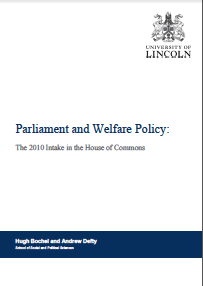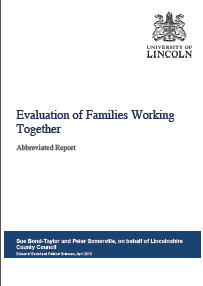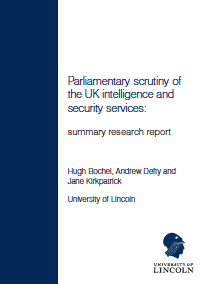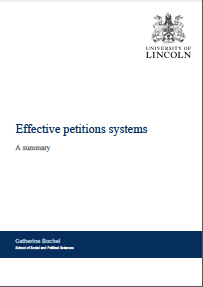 Parliament and Welfare Policy: The 2010 Intake in the House of Commons
Parliament and Welfare Policy: The 2010 Intake in the House of Commons
This brief report provides a summary of research undertaken during the 2010 Parliament drawing upon interviews with 29 MPs elected at the 2010 general election. It begins with a brief discussion of the characteristics of the intake, before moving on to consider their attitudes to a variety of social policy topics, including some comparison with previous research on that area.
In the twenty-first century, petitioning is one of the most common forms of political participation. This research focused on petitions systems in the light of the increasing use of petitioning as a participatory tool. It drew upon case studies of petitions systems from the House of Commons, the Scottish Parliament, the National Assembly for Wales, Wolverhampton City Council, an urban unitary council in England, and Renfrewshire Council in Scotland. While it did not set out to examine the e-petitions system introduced at Whitehall and Westminster by the Coalition government following the 2010 general election, as it was launched during the period of the research it was given some consideration in the context of the other systems.
 Evaluation of Families Working Together
Evaluation of Families Working Together
Sue Bond-Taylor and Peter Somerville
Families Working Together (FWT) is an intervention project designed by Lincolnshire County Council (LCC) to improve outcomes for families in Lincolnshire who are experiencing multiple, complex needs. The project aimed to explore how a broad range of public, private and voluntary sector organisations can work together more efficiently and effectively to this end. The project was one of 16 community budget pilots promoted by the government across England. During the life of the pilot, the government announced the introduction of a Troubled Families programme, to which FWT needed to respond.
 Parliamentary scrutiny of the UK intelligence and security services
Parliamentary scrutiny of the UK intelligence and security services
Hugh Bochel, Andrew Defty and Jane Kirkpatrick
This research, funded by the Leverhulme Trust, examined the role of Parliament and parliamentarians in the scrutiny of the intelligence and security agencies as it has developed since the Security Service Act 1989. Previous research has focused overwhelmingly on the Intelligence and Security Committee, and while the work of the Committee formed an important part of this project, the study also looked more broadly at the scrutiny of intelligence and security issues within Parliament as a whole, with a particular focus on the nature and extent of parliamentary interest and understanding.
